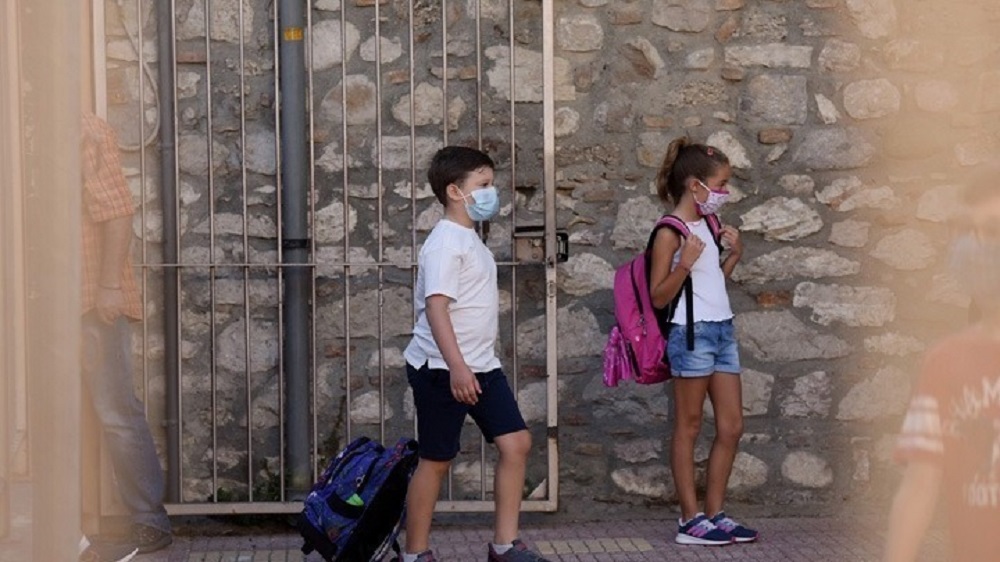
International Red Cross gives its Greek branch a 3 month period to reverse suspension decision
The Governing Board of the International Federation of Red Cross and Red Crescent Societies (IFRC) has voted to suspend the membership of the Hellenic Red Cross. In an announcement on Thursday, the IFRC said the suspension of membership will come into force on 1 January 2019 “if Hellenic Red Cross is unable to address concerns related to its governance.”
Following this decision, the IFRC has been asked to develop a transition plan over the next three months to ensure that services to vulnerable communities do not suffer.
The decision follows the non-completion of the long standing recovery plan over the past 10 years. Recent critical steps were promised by Hellenic Red Cross and accepted by IFRC in October 2017 and they must be urgently addressed:
Complete revision of the Hellenic Red Cross’ 1965 Statutes
A campaign to open up and expand the HRC’s membership base
The convocation of a General Assembly, before 15 October 2018, to hold elections for its Board in accordance with its new statutes.
In announcing the suspension, IFRC President Francesco Rocca said:
“ This was not a decision taken lightly. However, after many supportive initiatives over the past 10 years, we must ensure that the Hellenic Red Cross governance takes the necessary steps to rebuild the National Society, in accordance with the standards of our Movement.
“ Let me stress: IFRC’s commitment to the people of Greece, including those who rely on the Red Cross for support, remains absolute. IFRC will work to ensure that this decision does not compromise Red Cross support to vulnerable communities.”
“ I reiterate my unwavering commitment to continue to accompany and support the brave Hellenic Red Cross volunteers in their humanitarian journey,” he said.
This decision means that, unless progress is made, on 1 January 2019 Hellenic Red Cross will lose its rights as a member of IFRC, including its right to be represented at and participate in different IFRC bodies, including the General Assembly, the announcement said.
It also underlined the IFRC’s continued commitment to “supporting the renewal of an effective, vibrant and viable Hellenic Red Cross,” saying it would continue to work closely with Greek authorities and monitor progress in the agreed plan of action, while urging volunteers and members “to remain engaged in the renewal of their National Society.”
Baskozos statements to ANA
The health ministry was doing everything possible to save the Greek chapter and ensure that it can continue to perform its humanitarian work, the head of the National Council for Public Health and General Secretary for Public Health Yiannis Baskozos said on Thursday, in statements to the Athens-Macedonian News Agency (ANA) radio station “Praktoreio 104.9 FM”.
In order for this to happen, however, the management of the HRC had to complete specific changes demanded by the international Red Cross and Red Crescent federation (IFRC), he noted, adding that the local chapter’s elected board “bears sole responsibility” for ensuring that this happens.
“From the first moment that the current government and political leadership at the health ministry took over, we were faced with the threat that the HRC will be expelled from the international federation,” he said, adding that this was due to at least 20 years of mismanagement under previous administrations.
Among the problems laid at the HRC’s door, he said, were a failure to meet its financial obligations, undemocratic operation and failing to do carry out its humanitarian tasks as defined by the rules of the IFRC, Baskozos said.
The government had persuaded the international federation to give the HRC another six months to fix these issues before proceeded with a decision to suspend and ultimately expel the Greek chapter but the new board that emerged following an election on June 3 had failed to meet at least one of the commitments the chapter had made, he added.
“We will do what we can but on one condition: that the commitments made are implemented. There is no excuse for either delay or for neglecting obligations,” the ministry general secretary said, noting that the main changes that must be made include the introduction a new and democratic charter that opened up the HRC’s membership and gave volunteers and others the right to vote so that its management was not elected by just 200 people.
In an announcement on Thursday, however, the HRC’s management claimed to be completely unaware of the launch of expulsion proceedings by the IFRC, as reported in the press.
Source: AMNA

